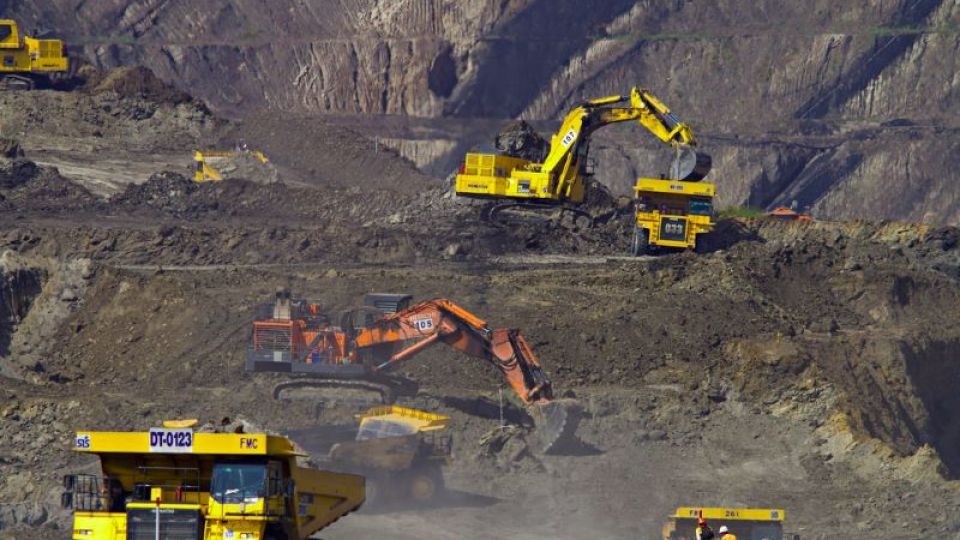July 23, 2024
JAKARTA – The government has launched an online tracking system for nickel and tin shipments to increase state revenue and improve governance in the mining sector.
Already implemented for coal shipments since 2022, the Mineral and Coal Information System (Simbara) has now been expanded to encompass nickel and tin and is to be applied to other metallic minerals in the future.
Resource-rich Indonesia is the world’s biggest producer of nickel and one of the largest producers of tin. Simbara will enable the government to track the supply of nickel and tin from mines to domestic smelters.
Finance Ministry Budget Director General Isa Rachmatarwata said the government had launched the online tracking system for nickel and tin shipments given the two commodities’ increasingly strategic role in national and global economic development.
“This is to continue the successful [implementation of] Simbara for coal. Today, we begin expanding the use of Simbara to nickel and tin, both of which are increasingly [important] for the national economy,” he said during the Simbara launch ceremony broadcast live on Monday.
He went on to say that the system’s implementation for coal had prevented illegal mining and increased state revenue collected from the sector.
Indonesia’s mined nickel production jumped from under 800,000 tonnes in 2019 to 1.8 million tonnes in 2023, when it accounted for 50 percent of global output, according to data from the United States Geological Survey (USGS).
Last year, authorities pursued a corruption investigation across the government that led to delays in the issuance of nickel mining quotas.
The country also grappled with a corruption case involving state-owned tin mining firm PT Timah, which is estimated to have caused Rp 271 trillion (US$17 billion) in state losses.
Septian Hario Seto, undersecretary for investment and mining at the Office of the Coordinating Maritime Affairs Minister, told Reuters on Friday that smelting companies had to report whom they bought the nickel from and where the mines were located.
Furthermore, smelters will not be allowed to unload ore shipments from mines that have not yet paid their royalties.
The Simbara system will also be linked to the government’s digital records of mining quotas as part of mining firms’ work and budget plans (RKABs). This will enable mining companies to track how much of their assigned production quota they have left for the period and would alert authorities should there be discrepancies in output and sales data, Seto added.
Josua Pardede, chief economist at publicly listed lender Bank Permata, told The Jakarta Post on Monday that the integrated management system would help the government formulate policies based on the most up-to-date information, which would eventually boost downstream and upstream mining business activities.
Moreover, in combination with a well-running mining commodity trading system, Simbara could be developed further to help businesses improve their environmental, social and governance (ESG) credibility, he added.
“As of today, the main objective of Simbara is improving the mining commodity sector in Indonesia, including mining planning and processing, so producers can enjoy single submission system facilities for more practical and accountable shipping,” Josua said.
Govt to widen use of Simbara further
Energy and Mineral Resources Minister Arifin Tasrif expects the use of Simbara to create an ecosystem that strengthens oversight of policy implementation and at the same time improves services for businesses through centralized data entry and increases the reliability and accuracy of coal and mineral data shared across ministries and institutions.
“Next, we will complete [the expansion to] several [more] commodities, including copper, gold, bauxite, manganese, etc.,” he said on Monday, vowing that, with Simbara, only registered mining companies with RKABs could make professional billing.
After making a payment, a company would receive a state revenue transaction number (NTPN), he added.
Indonesian Nickel Industry Forum chairman Alexander Barus noted a significant improvement in the mineral and coal information system in many aspects since 2022, including monitoring, permit processing, shipping and sales as well as non-tax state revenue (PNPB) transparency.
“The nickel mining industry welcomes the implementation of Simbara, of course with continuous improvements,” he told the Post on Monday.


